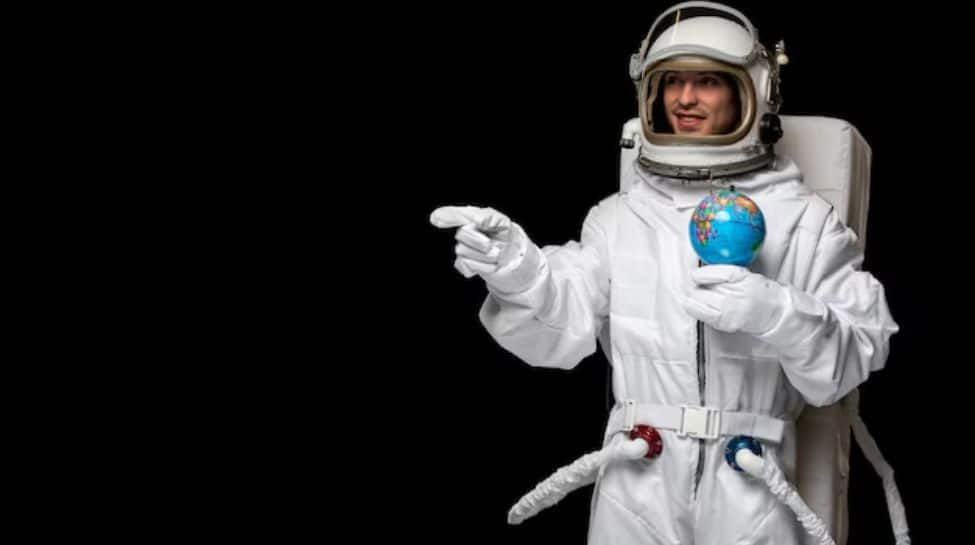If your body were exposed to the vacuum of space without a spacesuit, this is what would happen.
A vacuum is a space in which there is no air, gas, or any other matter. In space, a vacuum is an area with no atmosphere or air pressure.
The first thing to understand is that many Hollywood depictions of this situation are exaggerated. They often show people without helmets or spacesuits exploding or freezing to death immediately. In reality, the same things would happen, but they would not be as extreme.
An astronaut floating in space without a suit would not survive, but would die within minutes rather than seconds. It would be a brutal process, with bodily fluids boiling over and a frozen nose and mouth.
Space is an airless vacuum, meaning there is no atmosphere or air pressure like we have on Earth.
Air pressure affects the temperature at which liquids boil and turn into gas.
When the air pressure outside a liquid is high, as it is at sea level on Earth, it becomes more difficult for gas bubbles to form, rise to the surface, and escape.
In space, where there is almost no air pressure, liquids boil at much lower temperatures. This means that even at colder temperatures, liquids can start to boil quickly in space.
Dr. Kris Lehnhardt, a scientist with NASA’s Human Research Program, explained to Live Science that this is a big problem because about 60 percent of the human body is made up of water.
Without pressure, the liquid water in our bodies would begin to boil and quickly turn into gas. “In other words, all the water-containing tissues in your body would begin to swell,” he said.
Some people have been exposed to almost no air pressure and have lived to share their experiences.
In 1966, NASA aerospace engineer Jim LeBlanc was testing prototype spacesuits in a large vacuum chamber. During the test, the hose supplying air to his suit disconnected. “I remember stepping back and feeling the saliva on my tongue start to bubble just before I blacked out, meaning just before I lost consciousness. That was the last thing I remembered,” he shared in the 2008 documentary series “Moon Machines” episode about the spacesuit.
The formation of gas bubbles in body fluids, called boiling, can also occur in deep-sea divers who surface too quickly. This is because they are moving from a high-pressure area underwater to a low-pressure environment on the surface.
Under high pressure conditions, gases in the body remain dissolved in liquids. When they rise rapidly and the pressure drops, these gases can suddenly form bubbles, which can be dangerous.
For unsuited astronauts, the blood in their veins boils more slowly than the water in their tissues because the circulatory system has its own internal pressure. However, the body tissues would experience a lot of bubbling, known as boiling, very quickly.
A 2013 study published in the journal Aerospace Medicine and Human Performance examined past cases of animals and humans exposed to vacuum and found that they lost consciousness in less than 10 seconds.
Some of them could not control their bladder or bowel movements, and the swelling of their muscles blocked blood flow to the heart and brain. This was because their muscles expanded and acted as a kind of steam lock.
Vapor lock refers to a condition where the flow of liquid is obstructed due to the formation of vapor or gas in the system, causing a blockage.
Lehnhardt said it is impossible for a person to survive this and that death is likely in less than two minutes.
According to information from NASA’s Bioastronautics Fact Book, the lack of pressure in space would force air out of the lungs, leading to asphyxiation in just a few minutes. This happens because in the vacuum of space there is no air pressure to keep the air in the lungs, causing it to rush out, making it impossible to breathe.
Once the first burst of air escapes, the vacuum of space would continue to draw gas and water vapor out of your body through your airways. This means that in the absence of pressure, the air and moisture inside your body would be continuously drawn out, making it impossible for you to breathe or survive in space.
The continuous boiling of water in the body would create a cooling effect. As the water molecules evaporate, they would absorb thermal energy from the body, causing the areas around the nose and mouth to become almost completely frozen.
The rest of the body would also cool, but this would occur at a slower rate since there would be less evaporation.
(Girish Linganna is a Bengaluru-based defence and aerospace analyst. He is also a director of ADD Engineering Components, India, Pvt. Ltd, a subsidiary of ADD Engineering GmbH, Germany. The views expressed in this article are solely those of the author.)
Disclaimer:
The information contained in this post is for general information purposes only. We make no representations or warranties of any kind, express or implied, about the completeness, accuracy, reliability, suitability or availability with respect to the website or the information, products, services, or related graphics contained on the post for any purpose.
We respect the intellectual property rights of content creators. If you are the owner of any material featured on our website and have concerns about its use, please contact us. We are committed to addressing any copyright issues promptly and will remove any material within 2 days of receiving a request from the rightful owner.

